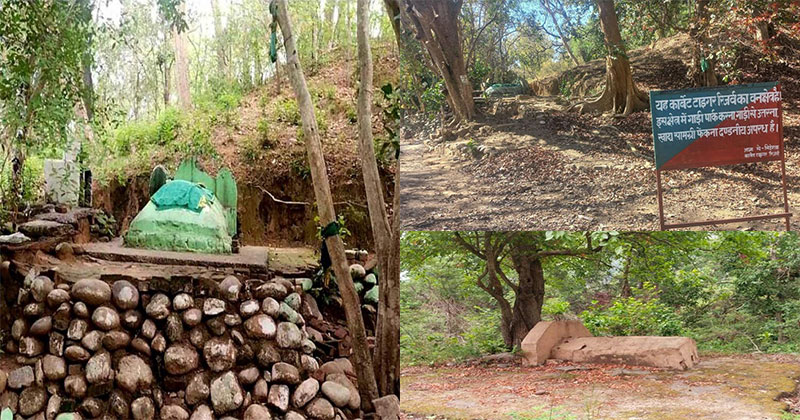Land Jihad: A Detailed Legal Analysis
Introduction
Land Jihad is a controversial term that has recently gained attention in certain political and social circles. It refers to the alleged strategic acquisition of land by a particular religious group to alter the demographic balance of an area. This term is heavily loaded with political, social, and religious connotations, and its usage has been criticized for promoting communal discord. In this detailed analysis, we will explore the legal, constitutional, and societal aspects of this concept in both English and Hindi.
Legal Framework in India
India’s legal system provides a comprehensive framework governing property rights, land acquisition, and religious freedom. The key legislations and constitutional provisions relevant to the discussion of Land Jihad include:
- Constitution of India
- Indian Penal Code (IPC)
- Land Acquisition Act, 2013
- Religious and Charitable Endowments Act
- Various State Land Laws
1. Constitution of India
The Constitution of India guarantees certain fundamental rights to its citizens, which are relevant to the discourse on Land Jihad.
- Article 14: Ensures equality before the law and equal protection of the laws within the territory of India.
- Article 19(1)(f): (Now repealed) provided citizens the right to acquire, hold, and dispose of property.
- Article 25: Guarantees freedom of conscience and the right to freely profess, practice, and propagate religion.
- Article 26: Provides the right to manage religious affairs.
- Article 31: (Now repealed) dealt with compulsory acquisition of property by the state.
2. Indian Penal Code (IPC)
Certain sections of the IPC may be invoked in cases related to Land Jihad:
- Section 153A: Deals with promoting enmity between different groups on grounds of religion, race, place of birth, residence, language, etc.
- Section 295A: Punishes deliberate and malicious acts intended to outrage religious feelings.
- Section 120B: Penalizes criminal conspiracy.
3. Land Acquisition Act, 2013
This act regulates the process of land acquisition in India and aims to ensure fair compensation for landowners and those affected by the acquisition.
- Section 3: Defines public purpose, which includes strategic purposes related to the defense of India, infrastructure projects, and more.
- Section 4: Notification and acquisition process.
- Section 11: Compensation for land acquisition.
4. Religious and Charitable Endowments Act
This act governs the administration of religious and charitable endowments and ensures that properties dedicated to religious purposes are used appropriately.
5. State Land Laws
Various states have their own land laws that regulate land ownership, transfer, and use. These laws also address issues related to agricultural land, urban land, and tribal land.
Analysis of Land Jihad Allegations
The term “Land Jihad” implies a conspiracy by a religious group to acquire land strategically to change the demographic composition of an area. This allegation has several implications:
- Communal Harmony: Such accusations can inflame communal tensions and disrupt social harmony.
- Legal Implications: If proven, these actions could fall under sections of the IPC related to conspiracy, promoting enmity, and outraging religious feelings.
- Constitutional Rights: Any blanket restriction or discriminatory action against a particular community in land transactions would violate constitutional rights to equality, freedom of religion, and right to property (subject to reasonable restrictions).
Case Studies and Judicial Pronouncements
To understand the legal stance on such matters, it is essential to look at relevant case laws and judicial pronouncements:
- S.R. Bommai vs. Union of India: This landmark case reinforced the secular fabric of India and emphasized that the state has no religion.
- Bijoe Emmanuel vs. State of Kerala: Affirmed the right to religious freedom and practice under Article 25.
- State of Karnataka vs. Dr. Praveen Bhai Togadia: The Supreme Court highlighted the importance of maintaining public order and communal harmony.
Government Policies and Actions
Governments at the state and central levels have occasionally taken actions perceived as addressing the issue of Land Jihad:
- Uttar Pradesh Prohibition of Unlawful Conversion of Religion Ordinance, 2020: Although primarily aimed at preventing forced conversions, it has been cited in discussions on Land Jihad.
- Demographic Surveys and Land Audits: Some states have conducted surveys and audits to monitor land transactions and demographic changes.
Criticism and Counterarguments
The concept of Land Jihad has faced significant criticism:
- Communal Overtones: Critics argue that it is a communal and divisive term aimed at creating fear and suspicion among different religious communities.
- Lack of Evidence: There is often a lack of concrete evidence to substantiate the claims of a coordinated strategy to acquire land.
- Legal Safeguards: Existing legal and constitutional safeguards are deemed sufficient to address any genuine concerns regarding illegal land acquisition or demographic manipulation.
Conclusion
The term Land Jihad is highly contentious and has significant implications for communal harmony, legal interpretations, and constitutional rights. While it is essential to address any genuine concerns of illegal land acquisitions or demographic manipulations, it is equally important to ensure that such allegations are not used to fuel communal tensions and violate the fundamental rights guaranteed by the Constitution of India.
References:
https://satyaagrah.com/india/jihad/588-land-jihad-being-carried-out-by-waqf-board-much-more-dangerous-than-love-jihad
भूमि जिहाद: एक विस्तृत कानूनी विश्लेषण
परिचय
भूमि जिहाद एक विवादास्पद शब्द है जो हाल ही में कुछ राजनीतिक और सामाजिक हलकों में ध्यान आकर्षित कर रहा है। यह शब्द उस कथित रणनीतिक भूमि अधिग्रहण को संदर्भित करता है, जिसके द्वारा एक विशेष धार्मिक समूह द्वारा क्षेत्र की जनसांख्यिकीय संतुलन को बदलने का प्रयास किया जाता है। यह शब्द राजनीतिक, सामाजिक और धार्मिक निहितार्थों से भरा हुआ है और इसके उपयोग की आलोचना सांप्रदायिक वैमनस्य को बढ़ावा देने के लिए की गई है। इस विस्तृत विश्लेषण में, हम इस अवधारणा के कानूनी, संवैधानिक और सामाजिक पहलुओं का अन्वेषण करेंगे।
भारत में कानूनी ढांचा
भारत का कानूनी प्रणाली संपत्ति अधिकार, भूमि अधिग्रहण और धार्मिक स्वतंत्रता को नियंत्रित करने वाले व्यापक ढांचे को प्रदान करता है। भूमि जिहाद की चर्चा के लिए प्रासंगिक प्रमुख कानून और संवैधानिक प्रावधान निम्नलिखित हैं:
- भारत का संविधान
- भारतीय दंड संहिता (IPC)
- भूमि अधिग्रहण अधिनियम, 2013
- धार्मिक और परोपकारी बंदोबस्ती अधिनियम
- विभिन्न राज्य भूमि कानून
1. भारत का संविधान
भारत का संविधान अपने नागरिकों को कुछ मौलिक अधिकार प्रदान करता है, जो भूमि जिहाद के विमर्श के लिए प्रासंगिक हैं।
- अनुच्छेद 14: भारत के क्षेत्र में कानून के समक्ष समानता और विधियों के समान संरक्षण की गारंटी देता है।
- अनुच्छेद 19(1)(f): (अब निरस्त) नागरिकों को संपत्ति प्राप्त करने, रखने और निपटाने का अधिकार प्रदान करता था।
- अनुच्छेद 25: अंतरात्मा की स्वतंत्रता और धर्म को स्वतंत्र रूप से मानने, पालन करने और प्रचार करने का अधिकार गारंटी देता है।
- अनुच्छेद 26: धार्मिक मामलों का प्रबंधन करने का अधिकार प्रदान करता है।
- अनुच्छेद 31: (अब निरस्त) संपत्ति के राज्य द्वारा अनिवार्य अधिग्रहण से संबंधित था।
2. भारतीय दंड संहिता (IPC)
भूमि जिहाद से संबंधित मामलों में IPC की कुछ धाराओं का सहारा लिया जा सकता है:
- धारा 153A: धर्म, जाति, जन्म स्थान, निवास, भाषा आदि के आधार पर विभिन्न समूहों के बीच वैमनस्य को बढ़ावा देने से संबंधित है।
- धारा 295A: धार्मिक भावनाओं को ठेस पहुँचाने के उद्देश्य से किए गए जानबूझकर और दुर्भावनापूर्ण कृत्यों को दंडित करता है।
- धारा 120B: आपराधिक षड्यंत्र को दंडित करता है।
3. भूमि अधिग्रहण अधिनियम, 2013
यह अधिनियम भारत में भूमि अधिग्रहण की प्रक्रिया को नियंत्रित करता है और भूमि स्वामियों और अधिग्रहण से प्रभावित लोगों के लिए उचित मुआवजे की व्यवस्था करता है।
- धारा 3: सार्वजनिक उद्देश्य को परिभाषित करता है, जिसमें भारत की रक्षा, बुनियादी ढांचा परियोजनाओं आदि से संबंधित रणनीतिक उद्देश्य शामिल हैं।
- धारा 4: अधिसूचना और अधिग्रहण प्रक्रिया।
- धारा 11: भूमि अधिग्रहण के लिए मुआवजा।
4. धार्मिक और परोपकारी बंदोबस्ती अधिनियम
यह अधिनियम धार्मिक और परोपकारी बंदोबस्तों के प्रशासन को नियंत्रित करता है और सुनिश्चित करता है कि धार्मिक उद्देश्यों के लिए समर्पित संपत्तियों का उचित उपयोग हो।
5. राज्य भूमि कानून
विभिन्न राज्यों के अपने भूमि कानून हैं जो भूमि स्वामित्व, हस्तांतरण और उपयोग को नियंत्रित करते हैं। ये कानून कृषि भूमि, शहरी भूमि और आदिवासी भूमि से संबंधित मुद्दों को भी संबोधित करते हैं।
भूमि जिहाद के आरोपों का विश्लेषण
भूमि जिहाद शब्द का तात्पर्य है कि एक धार्मिक समूह द्वारा क्षेत्र की जनसांख्यिकीय संरचना को बदलने के लिए रणनीतिक रूप से भूमि का अधिग्रहण किया जा रहा है। इस आरोप के कई निहितार्थ हैं:
- सांप्रदायिक सद्भावना: ऐसे आरोप सांप्रदायिक तनाव को भड़का सकते हैं और सामाजिक सद्भाव को बाधित कर सकते हैं।
- कानूनी निहितार्थ: यदि सिद्ध हो जाता है, तो ये कार्य आपराधिक षड्यंत्र, वैमनस्य को बढ़ावा देने और धार्मिक भावनाओं को ठेस पहुँचाने से संबंधित IPC की धाराओं के तहत आते हैं।
- संवैधानिक अधिकार: किसी विशेष समुदाय के खिलाफ भूमि लेन-देन में किसी भी प्रकार का प्रतिबंध या भेदभाव संवैधानिक अधिकारों का उल्लंघन होगा जो समानता, धार्मिक स्वतंत्रता और संपत्ति के अधिकार की गारंटी देते हैं (उचित प्रतिबंधों के अधीन)।
केस स्टडी और न्यायिक निर्णय
ऐसे मामलों पर कानूनी रुख को समझने के लिए संबंधित केस कानून और न्यायिक निर्णयों को देखना महत्वपूर्ण है:
- S.R. बोंबई बनाम भारत संघ: इस महत्वपूर्ण मामले ने भारत के धर्मनिरपेक्ष ढांचे को मजबूत किया और जोर दिया कि राज्य का कोई धर्म नहीं है।
- बिजोए इमैनुअल बनाम केरल राज्य: अनुच्छेद 25 के तहत धार्मिक स्वतंत्रता और अभ्यास के अधिकार की पुष्टि की।
- कर्नाटक राज्य बनाम डॉ. प्रवीण भाई तोगड़िया: सर्वोच्च न्यायालय ने सार्वजनिक व्यवस्था और सांप्रदायिक सद्भाव बनाए रखने के महत्व पर जोर दिया।
सरकारी नीतियाँ और कार्रवाइयाँ
राज्य और केंद्र स्तर की सरकारों ने कभी-कभी भूमि जिहाद के मुद्दे को संबोधित करने के रूप में देखी जाने वाली कार्रवाइयाँ की हैं:
- उत्तर प्रदेश धर्म परिवर्तन निषेध अध्यादेश, 2020: हालाँकि मुख्य रूप से जबरन धर्म परिवर्तन को रोकने के उद्देश्य से, इसे भूमि जिहाद की चर्चाओं में उद्धृत किया गया है।
- जनसांख्यिकीय सर्वेक्षण और भूमि लेखा परीक्षा: कुछ राज्यों ने भूमि लेन-देन और जनसांख्यिकीय परिवर्तनों की निगरानी के लिए सर्वेक्षण और लेखा परीक्षा की है।
आलोचना और प्रतिवाद
भूमि जिहाद की अवधारणा को कड़ी आलोचना का सामना करना पड़ा है:
- सांप्रदायिक स्वर: आलोचकों का कहना है कि यह एक सांप्रदायिक और विभाजनकारी शब्द है जो विभिन्न धार्मिक समुदायों के बीच भय और संदेह पैदा करने के उद्देश्य से है।
- सबूत की कमी: अक्सर यह आरोप लगाने के लिए ठोस सबूतों की कमी होती है कि भूमि अधिग्रहण के लिए एक समन्वित रणनीति है।
- कानूनी सुरक्षा उपाय: अवैध भूमि अधिग्रहण या जनसांख्यिकीय हेरफेर के किसी भी वास्तविक चिंता को संबोधित करने के लिए मौजूदा कानूनी और संवैधानिक सुरक्षा उपायों को पर्याप्त माना जाता है।
निष्कर्ष
भूमि जिहाद शब्द अत्यधिक विवादास्पद है और सांप्रदायिक सद्भाव, कानूनी व्याख्याओं और संवैधानिक अधिकारों के लिए महत्वपूर्ण निहितार्थ हैं। अवैध भूमि अधिग्रहण या जनसांख्यिकीय हेरफेर की किसी भी वास्तविक चिंता को संबोधित करना आवश्यक है, लेकिन यह सुनिश्चित करना भी उतना ही महत्वपूर्ण है कि ऐसे आरोप सांप्रदायिक तनाव को बढ़ावा देने और भारत के संविधान द्वारा गारंटीकृत मौलिक अधिकारों का उल्लंघन करने के लिए उपयोग नहीं किए जाते हैं।
Author: lex 24
Mr. Shiva Kant Vats, Advocate A distinguished advocate practicing at the Supreme Court of India and a business consultant. He provides expert guidance to a wide range of clients. Deeply interested in India's history and cultural heritage, he is dedicated to exploring and reviving the ancient wisdom of the Vedic Rishi tradition. We frequently invokes the timeless Vedic prayers: "असतो मा सद्गमय" (Lead me from untruth to truth) "तमसो मा ज्योतिर्गमय" (Lead me from darkness to light) "मृत्यो मा अमृतंर्गमय" (Lead me from death to immortality) We emphasizes continued relevance in today's world. The envisions reviving and upholding the glorious traditions of the Vedic Rishi culture, asserting that each individual can contribute to global welfare through relentless effort. We passionately believes that rekindling this ancient tradition is possible in modern times and foresees a revolutionary transformation worldwide. In our call to action, we urges readers to transcend geographical boundaries and illuminate the world with the guiding light of humanity. We encourages everyone to read his works, engage with our ideas through likes, comments, and shares, and foster meaningful dialogue beyond mere digital interactions. In an era dominated by technology, we reminds the paramount importance of genuine friendships and human connections....




